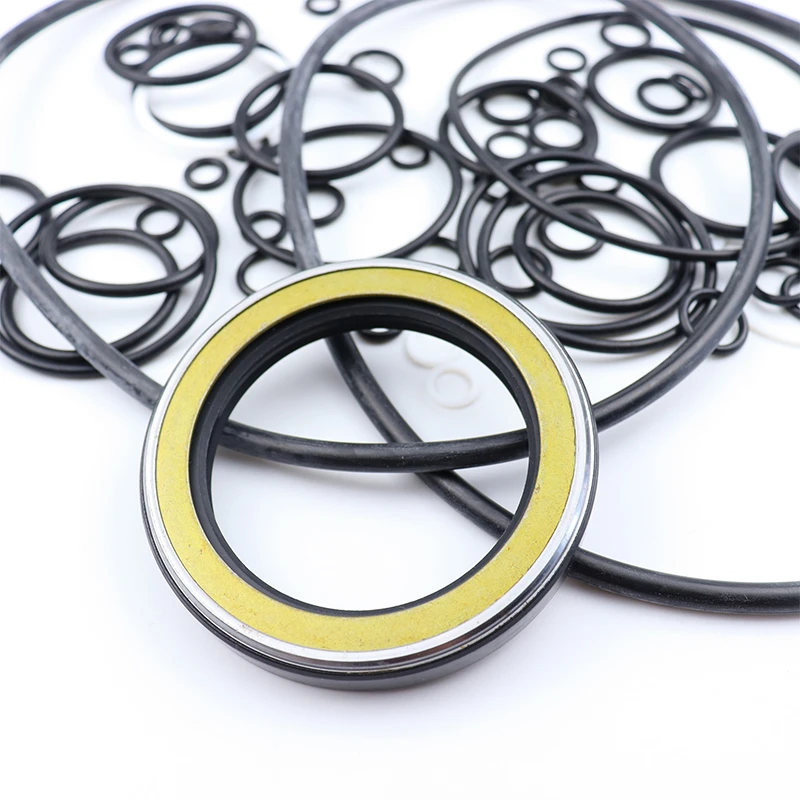11 月 . 02, 2024 04:08 Back to list
rotary oil seals
Understanding Rotary Oil Seals Essential Components for Machinery Efficiency
Rotary oil seals, also known as rotary shaft seals or radial lip seals, play a crucial role in various mechanical systems, ensuring the efficient operation of machinery by preventing the leakage of lubricants. These seals are essential in applications ranging from automotive engines to industrial machinery, and their significance cannot be understated.
What are Rotary Oil Seals?
Rotary oil seals are designed to seal the dynamic interface between stationary and rotating components. They are typically composed of a flexible elastomeric material that forms a tight seal around a shaft. The basic structure of a rotary oil seal includes a sealing lip, a metallic or rigid outer casing, and sometimes additional features like spring aids to enhance sealing performance. The sealing lip fits snugly against the shaft, creating a barrier that prevents the escape of oil or other lubricants.
Applications of Rotary Oil Seals
The versatility of rotary oil seals means they are used in a myriad of applications across different industries. In automotive contexts, they’re commonly found in engines, transmissions, and differential housings. Here, they prevent oil leaks that could lead to performance issues or mechanical failures. In industrial machinery, rotary seals are used in pumps, motors, and gearboxes, ensuring that lubricants remain inside the system, which is critical for reducing friction and wear.
Importance of Rotary Oil Seals
rotary oil seals

The importance of rotary oil seals lies in their ability to maintain the integrity of lubrication systems. Proper lubrication is essential for minimizing friction and heat, thereby extending the lifespan of machinery and reducing maintenance costs. A failure in a rotary oil seal can lead to significant oil loss, resulting in increased wear on rotating components and potentially catastrophic failures.
Moreover, rotary seals also play a vital role in containing contaminants. By preventing dirt, dust, and moisture from entering the lubrication system, they help maintain the cleanliness and efficiency of the machinery. In sensitive systems, such as aerospace and medical equipment, the reliability of rotary oil seals is paramount.
Choosing the Right Rotary Oil Seal
When selecting a rotary oil seal, several factors must be considered, including the diameter of the shaft, the operating temperature, pressure conditions, and compatibility with the lubricants used. Additionally, different materials may offer various advantages in terms of wear resistance, chemical compatibility, and temperature tolerance. For instance, silicone seals provide excellent heat resistance, while nitrile rubber is widely used due to its good oil compatibility.
Conclusion
In conclusion, rotary oil seals are indispensable components that contribute to the efficiency and reliability of machinery across various applications. Their ability to prevent lubricant leakage and protect against contamination helps ensure optimal functioning and longevity of equipment. Understanding the importance of these seals and making informed choices regarding their selection and maintenance can ultimately lead to improved mechanical performance and reduced operational costs. As industries continue to evolve, the role of rotary oil seals will remain critical in driving machinery innovation and efficiency.
-
The Power of Advanced Sealing: High-Pressure Solutions for Modern Machinery
NewsOct.29,2024
-
Optimizing Machinery with High-Performance Oil Seals
NewsOct.29,2024
-
Maximizing Machinery Efficiency with Advanced Oil Seals
NewsOct.29,2024
-
Ensuring Equipment Longevity with Quality Oil Seals
NewsOct.29,2024
-
Enhance Equipment Performance with Quality Oil Seals
NewsOct.29,2024
-
Custom Oil Seals for Specialized Machinery Needs
NewsOct.29,2024
-
The Role of Wiper Seals in Dust Sealing and Oil Protection
NewsOct.20,2024
Products categories
















